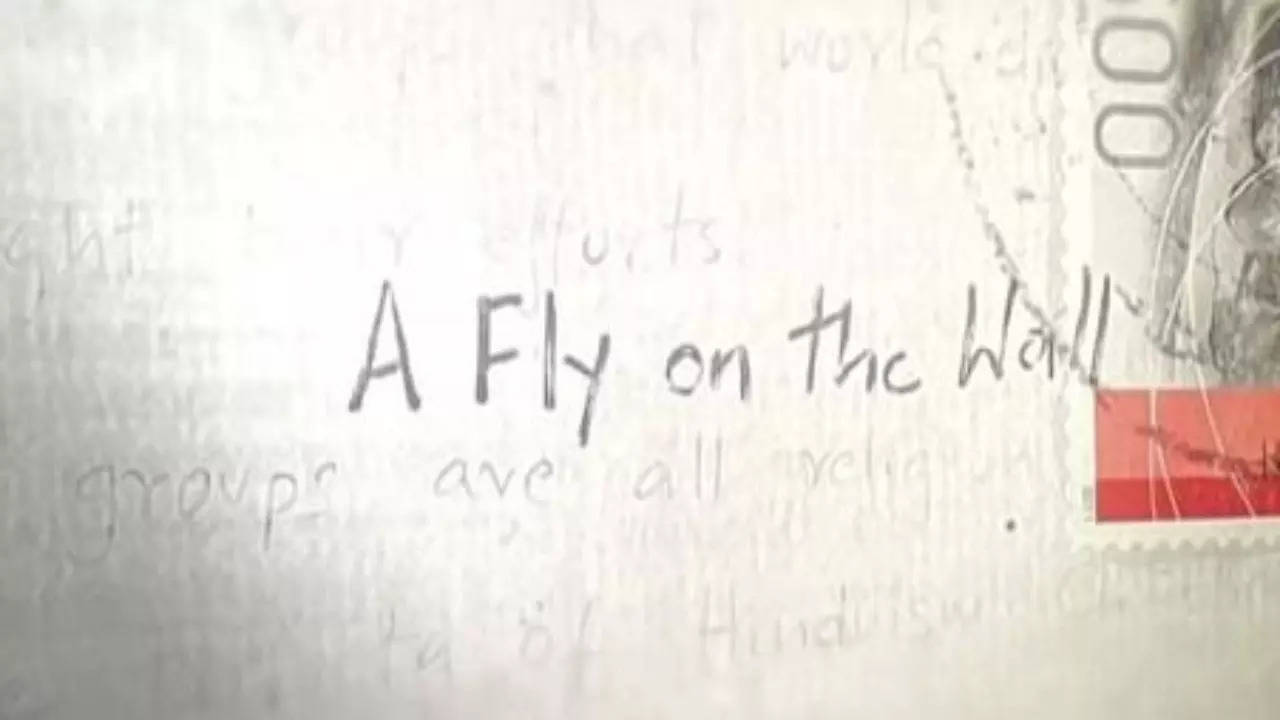
The term ‘dying moments’ acquires an all-new never-before meaning relevance and dimension in Nilesh Maniyar and Shonali Bose’s pathbreaking documentary A Fly On The Wall. It introduces us to Chika Kapadia, God bless his soul, who chooses medically assisted suicide in Zurich in a hospice called Dignitas after falling terminally ill.
So coming back to the dying moments, which song would you choose to listen to while you are waiting for death? Chika, who comes across as a man who would never deny life a chance, chooses a song called‘Low Spark Of High Heeled Boys’ by a group called Traffic. Chika also chooses to nibble on Parle G biscuits, a childhood treat, during his final moments as he awaits his irreversible exeunt.
How does it feel? Those dying moments? This is as close to knowing as we can get.
A Fly On The Wall is not your weekend entertainer. Its power and strength come from accepting the finality of death without a tear almost: no one, none of Chika’s close friends, not family (the latter group of grievers remains shadowy) cries in the 1 hour 22 minutes of recorded footage of Chika’s last days on earth.
Even the co-director Shonali Bose, incurably emotional, cries only once on camera.
This is history without hysteria. The calm before the exit is unnerving. I have seldom been so uncomfortable watching a film on death. The fact that the man who is dying on camera is not faking it, is a sobering slap on all the famous death sequences in our films, from Dilip Kumar in Devdas to Rajesh Khanna in Anand.
No, there is no background music when we go. But like I said, you can select your favourite song if death arrived announced. And the food. And the memories.
It is with great admiration that we look at Chika as he calmly plans the day, date and time of his assisted suicide at Dignitas… Is it ethical, legal or advisable? We can go on debating on mortality and its perpetuity for as long as there are diseases and suffering.
What gives this deeply wounding film its moral heft is the neutral tone. No one is judging Chikas for choosing to die, least of all Shonali Bose who accompanies Chikas on his final journey to Switzerland, and beyond. She is at once a grieving friend and a vigilant filmmaker, anxious to capture every detail of her friend’s final departure, at the same time shamed by her own brutal desire to record every moment.
The fact that Chika Kapadia gets the most unprecedented send-off in the hoary history of euthanasia makes A Fly On The Wall something of a landmark documentary.

